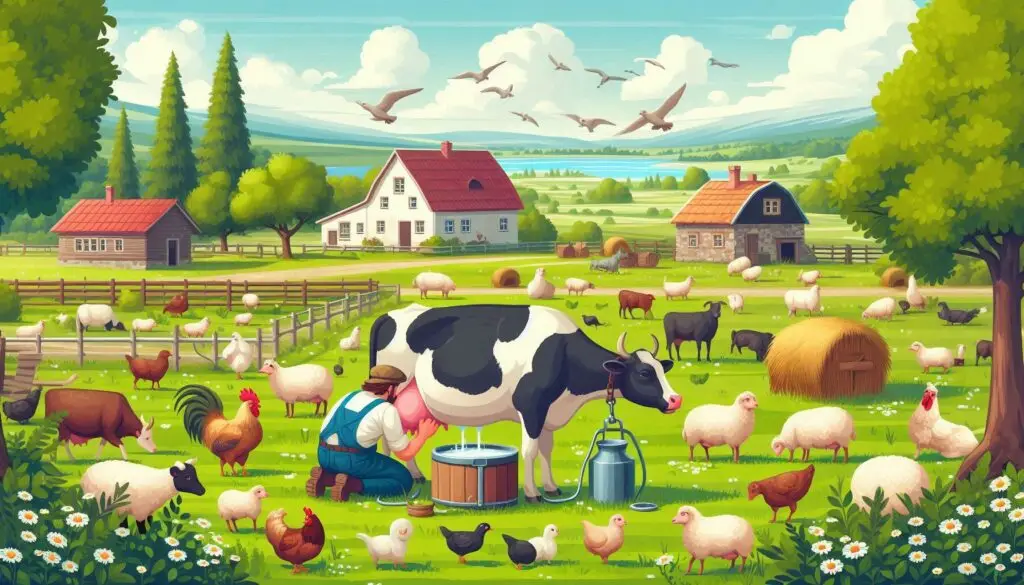Enhancing Sheep Development Programs in India

Introduction
Sheep farming plays a vital role in the agricultural landscape of India. It contributes significantly to the livelihoods of many farmers. However, several constraints hinder the growth of sheep development programs. This article explores these challenges and outlines actionable measures to enhance sheep production.
Understanding the Constraints in Sheep Development Programs
Low Productivity
One of the primary challenges faced by sheep farmers in India is low productivity. According to recent studies, Indian sheep yield significantly less wool and meat compared to their counterparts in developed nations. Factors contributing to this issue include inadequate breeding practices and poor health management. For more information on improving productivity, you can refer to this article on livestock management.
Limited Grazing Resources
Overgrazing and land degradation have severely limited grazing resources. This not only affects the health of the sheep but also reduces overall productivity. Sustainable grazing practices are essential for maintaining healthy flocks. You can learn more about sustainable practices from this resource on grazing management.
Market Access Issues
Farmers often face difficulties accessing markets. Price fluctuations for wool and meat can be significant, leading to financial instability for sheep farmers. Additionally, inadequate infrastructure for transportation and storage exacerbates these challenges. For insights on market access strategies, check out this guide on market linkages.
Lack of Awareness
Many farmers lack awareness of modern sheep husbandry practices. This knowledge gap leads to inefficient management techniques and resistance to adopting new methods that could enhance productivity. Educational resources can be found at the National Livestock Mission.
Technical Support Shortages
A shortage of technical manpower and veterinary services further complicates the situation. Farmers often struggle to access timely advice on health management and breeding practices. For more on veterinary services, visit the Veterinary Council of India.
Measures to Address Constraints
Strengthening Research and Development
Investing in research institutions like the Central Sheep and Wool Research Institute (CSWRI) is crucial. These institutions can develop better breeds suited for local conditions. Enhanced training programs can help farmers adopt best practices in sheep husbandry. You can read more about CSWRI’s initiatives here.
Importance of Research Institutions
Research institutions play a pivotal role in improving livestock quality. They provide insights into breeding techniques and health management strategies that can significantly boost productivity.
Improving Infrastructure
Developing better transportation and storage facilities is essential for enhancing market access. Establishing cooperative societies can empower farmers by giving them greater bargaining power. For examples of successful cooperatives, see this article on cooperative models.
Cooperative Societies
Cooperative societies enable farmers to pool resources, share knowledge, and access markets more effectively. They can negotiate better prices for their products, ensuring fair compensation for their efforts.
Enhancing Grazing Resources
Implementing sustainable grazing practices is vital for restoring degraded lands. Promoting fodder cultivation among farmers ensures a consistent supply of feed, which is essential for maintaining healthy flocks.
Sustainable Grazing Practices
Sustainable grazing involves rotating grazing areas and managing flock sizes to prevent overgrazing. This approach helps maintain soil health and promotes biodiversity.
Capacity Building Initiatives
Conducting workshops on modern sheep rearing techniques can empower farmers. Training sessions focused on disease management and financial literacy are also beneficial.
Workshops and Training Sessions
Workshops provide a platform for knowledge exchange among farmers. They can learn from experts and each other about effective practices that enhance productivity.
Policy Support
Strengthening government policies that support smallholders is crucial. Access to credit, insurance, and technical assistance can significantly improve farmers’ livelihoods.
Government Initiatives
Government initiatives aimed at livestock development can provide the necessary support for small-scale farmers. Policies should focus on sustainability and economic viability.
Market Regulation
Establishing regulatory frameworks can stabilize prices for wool and meat. Promoting direct marketing channels connects farmers with consumers, reducing reliance on middlemen.
Direct Marketing Channels
Direct marketing allows farmers to sell their products at fair prices, increasing their profit margins. This approach fosters transparency in pricing and strengthens farmer-consumer relationships.
Conclusion
Addressing the constraints in sheep development programs in India requires a multifaceted approach. By strengthening research efforts, improving infrastructure, enhancing grazing resources, building capacity among farmers, supporting policies, and regulating markets, we can significantly boost the productivity of sheep farming in India.





Can you be more specific about the content of your article? After reading it, I still have some doubts. Hope you can help me.
I don’t think the title of your article matches the content lol. Just kidding, mainly because I had some doubts after reading the article.
Your point of view caught my eye and was very interesting. Thanks. I have a question for you.